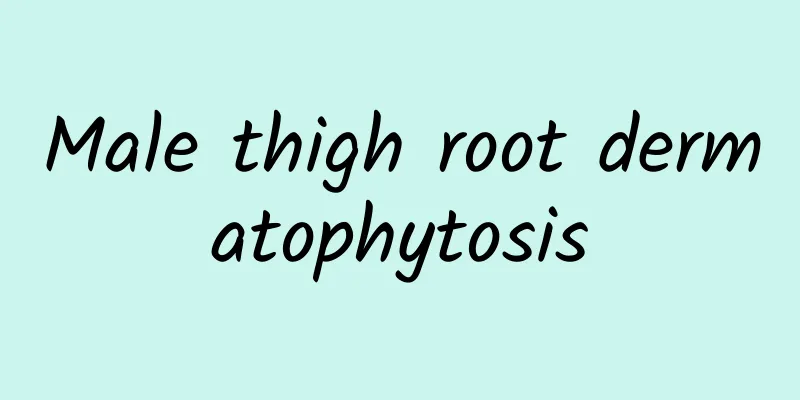Man reveals: This is what ejaculation feels like!

|
To talk about the feeling of ejaculation, you need to pay attention to understanding the process and steps of ejaculation. For men, ejaculation means orgasm, so understanding the process can control the time of ejaculation, which can also make the sex life of couples more harmonious. The first step of ejaculation is that the sympathetic nerves send out impulses to cause the smooth muscles of the vas deferens and seminal vesicles to contract, thereby transferring the semen in the vas deferens and seminal vesicles to the urethra; the second step is to use the impulses of the pudendal nerves to contract the transverse muscles at the root of the corpus cavernosum of the penis, thereby ejecting the semen in the urethra. The excitement of the higher parts of the brain also acts on the erection center and ejaculation center of the spinal cord through the descending pathway. Normal human sexual excitement stimulation comes from various senses and affects the spinal reflex activities through the brain. Ejaculation is a complex process that includes erection, ejaculation, ejaculation and orgasm. Erection is due to the swelling and hardening of the penis, and its primary nerve innervation comes from the sacral nerve plexus and the pelvic visceral nerves or erectile nerves. Ejaculation involves collecting semen before ejaculation and transporting it to the prostatic part of the urethra. With the closure of the bladder neck and distal urethral sphincter, the prostatic part of the urethra becomes a reservoir of semen. This will induce ejaculation, that is, the rhythmic ejection of semen through the urethra. The participation of the skeletal muscles of the perineum is essential in this process. Orgasm is a brain-involved, usually pleasurable event and is closely related to ejaculation. The neurophysiology of ejaculation is only partially understood. Research suggests that dopaminergic systems promote ejaculation while serotonergic systems inhibit ejaculation. The primary neural mechanism of ejaculation is somatic innervation, but it also involves nerves and fibers from the autonomic nervous system in the vagina; the autonomic branches of the parasympathetic nervous system primarily control erectile function while the sympathetic and somatic branches primarily control firing and ejaculation. |
<<: What is prostatic fluid? What are the functions of prostatic fluid?
>>: How to treat prostatitis quickly?
Recommend
Penile nodules symptoms pictures
Penile nodules, also known as male genital chemof...
The stone is stinging at the base of the penis. Is it about to come out?
A series of male diseases such as male prostate, ...
Erectile dysfunction treatment options
Genital erectile dysfunction is a kind of erectil...
Do you want to ejaculate again after holding back your semen?
When the sexual reproductive system is stimulated...
Who knows what to eat for men who often stay up late?
In today's society, men are under pressure th...
What to do if a man has thin eyebrows? How to make eyebrows thicker
Eyebrows are only a small part of our face, but t...
How to treat scrotal scabies nodules
There are many patients suffering from scrotal sc...
The benefits of men doing sit-ups
Fitness has become an indispensable healthy lifes...
What should patients with allergic eczema pay attention to?
We all know that eczema is a very common skin dis...
What causes bulging of penile blood vessels?
The penis is a very private part of men and also ...
What are the causes of non-gonococcal urethritis in men?
Among many diseases, male non-gonococcal urethrit...
When a man dies, who is the culprit?
When a man suffers from necrospermia, the pain he...
11 Most Nutritious Foods Men Should Eat
According to statistics, 4 out of the top 10 caus...
What to do when depression strikes? Diet therapy for depression
Due to the increasing pressure of modern life and...
What are the early symptoms and causes of chancroid?
The early symptoms and causes of chancroid are wh...









